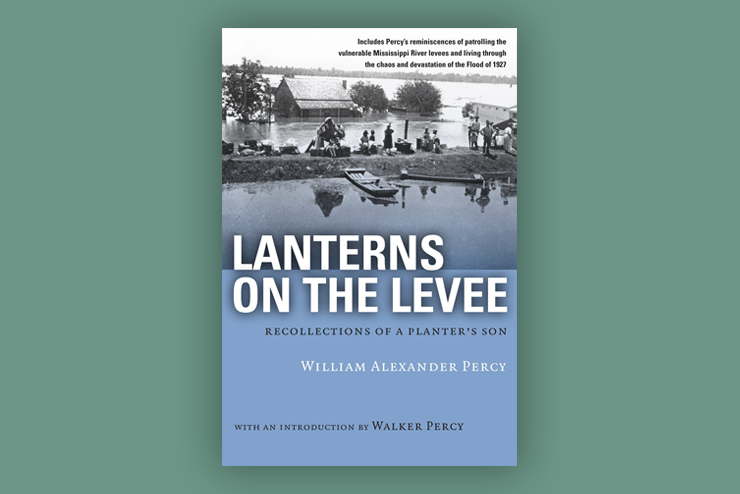Once upon a time I mentioned William Alexander Percy’s Lanterns on the Levee (1941) in a history seminar. The professor rolled his eyes: not that damned moonlight and magnolia again! A fellow student leaped to Percy’s rescue: Lanterns was a serious, thoughtful memoir for serious, thoughtful people.
It is. And it is a portrait of a certain kind of Southerner in a time that preceded today’s culture of accusatory righteousness. It is a book about the South; but also one about Western civilization, back when that term meant something.
Percy, a poet, planter, and all-purpose gentleman, was sprung from a line of Mississippians whose most distinguished member up to that time was his father, U.S. Sen. LeRoy Percy. LeRoy represented a type that no longer exists: a Sartoris, in Faulknerian terms; a foe of the Ku Klux Klan and race-baiting politicians. But by far the best-known member of this family is the great writer Walker Percy, whom Will partly reared following the deaths of Walker’s parents.
The story of the Percys has an elegiac quality, and not only because of the Civil War and its terrible aftermath. There was a stateliness, gravity, and sense of duty that magnified the family and its reputation before and after Appomattox. Will wasn’t one for government-instigated reforms. “All we need anywhere in any age is character: from that everything follows,” he wrote in Lanterns. “Leveling down’s the fashion now, but I remember the bright spires—they caught the light first and held it longest.”
Percy’s view of race relations was open-eyed and without rancor. He felt that conscientious white Southerners had to shoulder the responsibility for freed slaves. “To live among a people whom, because of their needs, one must in common decency protect and defend is a sore burden,” he wrote. The leaders of Black Lives Matter wouldn’t have the least idea what he was talking about back in 1941. They’d probably have smeared his house with graffiti.
Percy was befriended by members of the American cultural elite, who recognized in him a fellow defender of the same civilizational heritage. One gathers from his writing that tyrants in 1941 were still oppressing their own people. He knew nonetheless that “Honor and honesty, compassion and truth are good even if they kill you.” For it was “better for men to die than to call evil good and virtue itself will never die.” Will Percy was Old Roman to his fingertips.

Leave a Reply